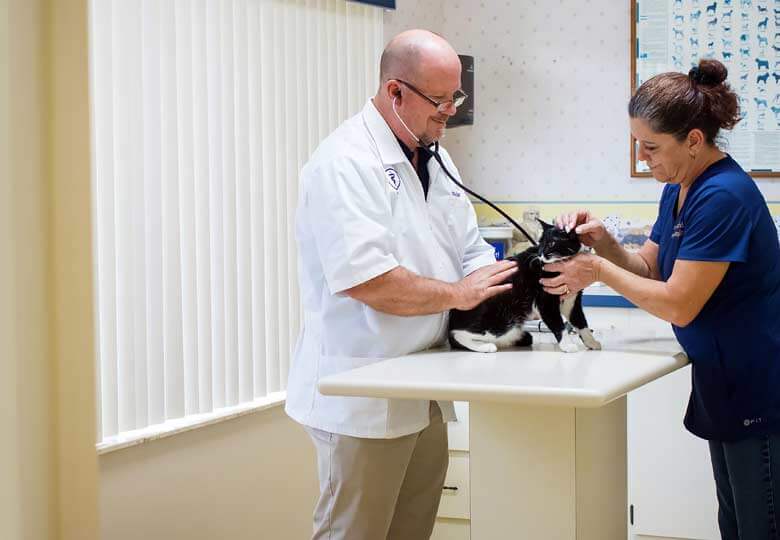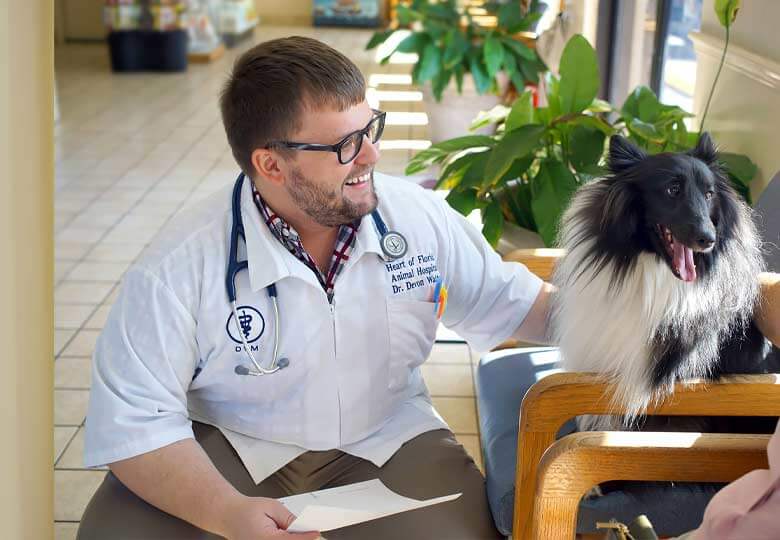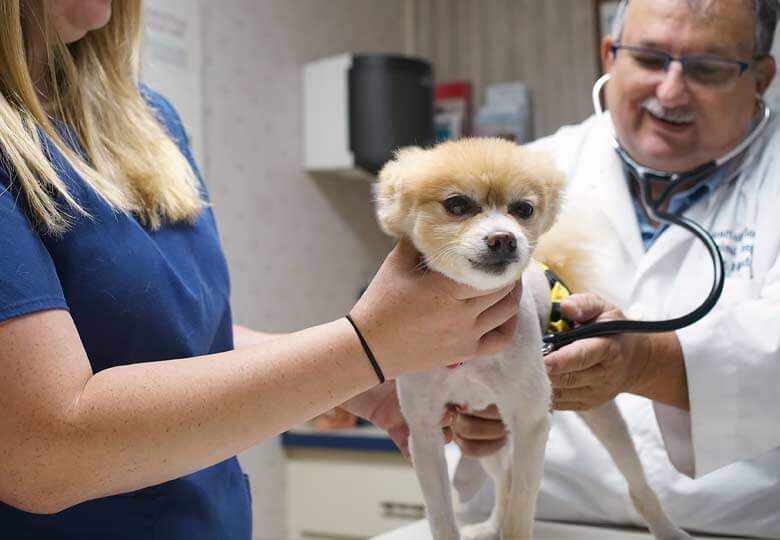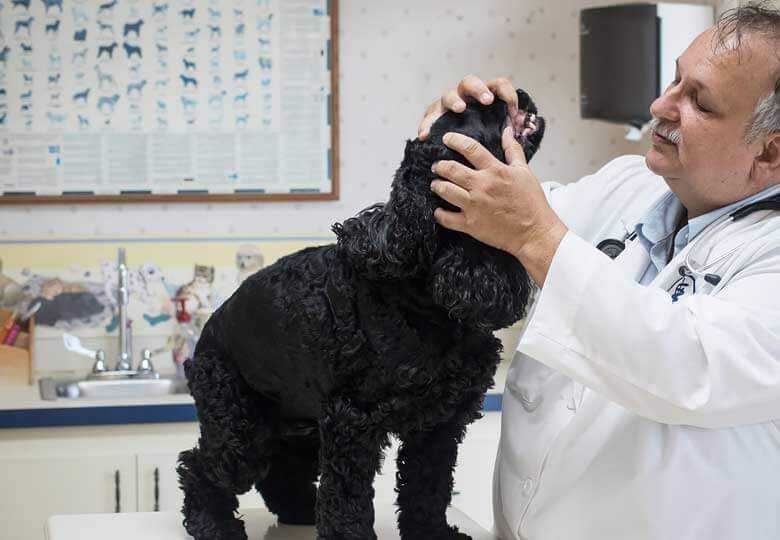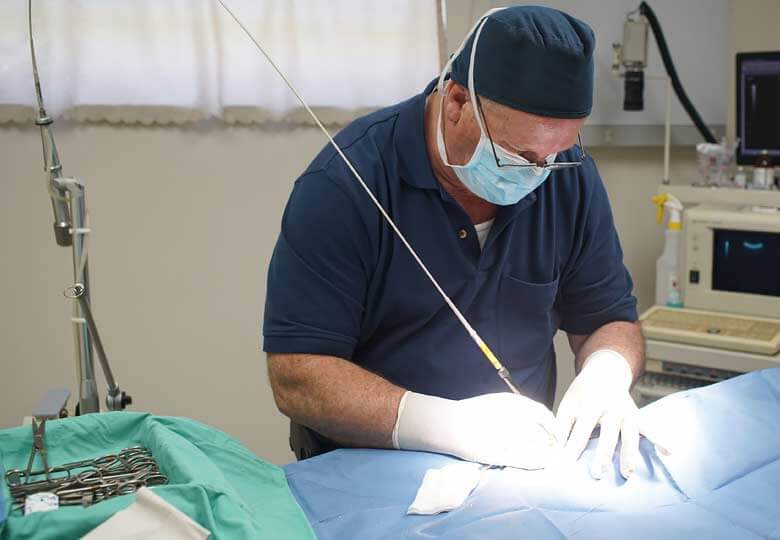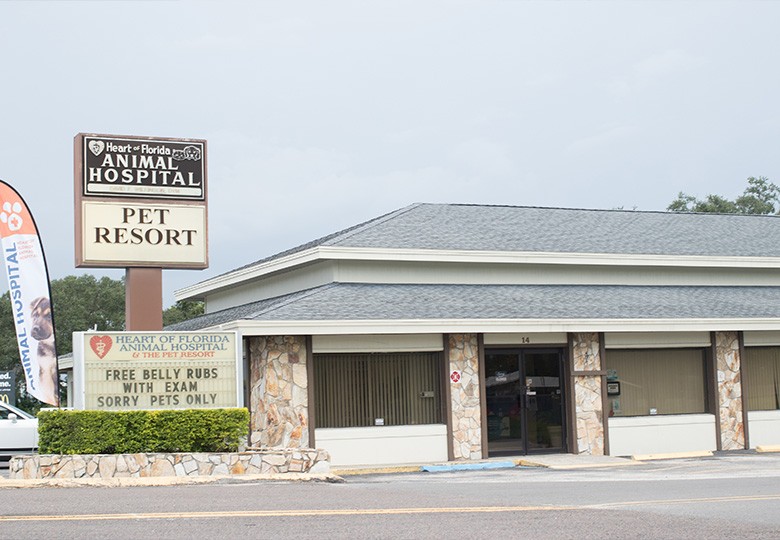
At Heart of Florida Animal Hospital, caring for pets is our passion.
Here, we treat pets like family. We understand how important your companion is to you — because they’re there for you through the thick and thin of life, with a wagging tail or a happy purr, and unconditional love. Our goal is to be your partner in taking care of your pet’s physical and mental wellbeing, so you can enjoy many happy years together. So, whether your pet needs a checkup with a doctor… a caring team and top-notch medical treatments when they’re ill… or, some advice on the best food for them or how to care for them at home — we’re here for you! Here, we see dogs & cats. And, we’ll strive to make their visit a comfortable and positive experience. Come in and get to know us, and see why both you and your pet will love coming here!

Meet Our Team

Dr. David Wilkinson
Dr. David Wilkinson received his Doctorate of Veterinary Medicine from Auburn University. After graduating, he returned to his hometown, Haines City. In 1987 he opened the Heart of Florida Animal Hospital and, with seeing a need for pet boarding in the area, opened the Pet Resort in 1996. Dr. Wilkinson provides high quality care for cats and dogs, however, over the years he has helped tigers, llamas, lions and snakes.
Community service is important to Dr. Wilkinson. He has served on Haines City’s Community Redevelopment Agency board and has mentored teenagers who were interested in pursuing veterinary careers. He provides free vet care for Haines City’s PD K-9 unit.
Dr. Wilkinson is married to his high school sweetheart, Connie, and has a daughter and son. He enjoys fishing and breeds boxer dogs. His love for animals started at a young age, having grown up his around his grandparents’ farms, and is still evident today with having horses, dogs, cats, rabbits, ducks and geese at his home.
Dr. Charles Hendry
Dr. Charles Hendry graduated from the University of Georgia, where he received his Doctorate of Veterinary Medicine in 1994. Prior to beginning his veterinary education, Dr. Hendry was a chemical researcher at Harbor Branch Oceanographic Institute. He started his veterinary career in Jacksonville at a mixed animal practice and then moved to Sebring, Florida, where he raised three children. Growing up in a farming community where he raised dogs, cats, cows, horses, rabbits, guinea pigs, and quail ultimately influenced Dr. Hendry’s move into the veterinary profession.
In 2018, Dr. Hendry relocated to Haines City to join Heart of Florida Animal Hospital. In his spare time, he enjoys fishing, playing guitar, reading, and traveling. One of his favorite aspects of living in Haines City is the family-centric values of the wonderful folks in the community.
Dr. Krystal Gerena
Krystal Gerena has always loved animals and wanted to be a veterinarian since the age of six years old. She values the human-animal bond and wants to be able to provide the best care and service to both animals and pet parents. She is originally from Puerto Rico and went to the University of Puerto Rico where she obtained an undergraduate degree in Biological Sciences. She later moved to the beautiful mountains of Tennessee where she completed her veterinary doctorate at Lincoln Memorial University-College of Veterinary Medicine. Her main interests include companion animal and exotics medicine. Her greatest vet school memory is completing an internship with Wildlife Vets in South Africa. During her free time, she enjoys outdoor activities in nature, trying different restaurants, and relaxing at home.

The moment we arrived at The Heart of Florida Animal Hospital, we were treated like family. The receptionists were very caring towards our little guy and made sure all our paperwork was ready for his visit. But it was the moment we were called inside the exam room what made the experience an even better one.
MC Reyes - Northeast Polk Gazette
Google

Best vet I have ever met. So caring and gives it to you straight. The entire staff is amazing and we trust them with all our fur babies.
- text
- text
Deborah V.
Facebook

I brought my puppy here for a second opinion and got real answers. She had a rough start to life and the vet and assistant really took care of her. They’re very informative, clean and truly ready to help. They have became her primary!
Brittany K.
Facebook

I wouldn't want anyone else to see my fur baby. I have no doubt he is getting the treatment he needs rather than a bunch of fluff. I also know that he is well taken care of when he needs to stay overnight or requires more invasive treatments. Everyone is amazing there - the front office staff, the techs, the vets -- we love you all. Thank you for the peace of mind we get from using your services.
Rebecca P.
Yelp

The staff is knowledgeable and deeply caring. The service is fast and I always feel like a valued customer. The doctors are extremely knowledgeable and are always able to answer all my questions and wave any silly causes for concern.
David S.
Google

Clinic Resources
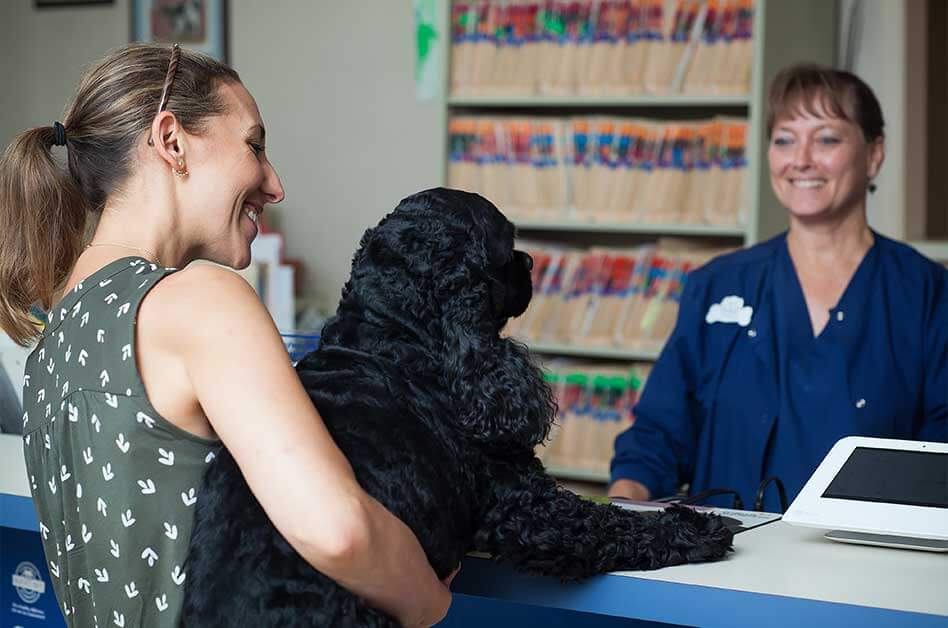
Your First Visit
No need to be nervous. Here’s what you can expect at your pet’s first visit…
FAQ
Have a question for us? Check our list of frequently asked questions, or give us a call at 863-421-2338.
Payment & Insurance
We accept a variety of payment options, including Care Credit. And, we can help you with pet insurance forms.
Forms
Save time by filling out your forms before you arrive. Use these for your first visit, boarding, grooming, acupuncture, and behavior consults.







